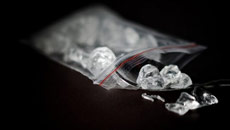Detecting cancer could soon become a lot easier as scientists have used DNA to develop a tool that detects and reacts to chemical changes caused by cancer cells.
The nanosensor measures pH variations at the nanoscale - how acidic (a higher pH level) or alkaline (a lower pH level) it is.
Cancer cells often display a lower pH compared to normal cells: the pH level inside cancer cells is higher than it is outside.
“In living organisms, these small pH changes typically occur in tiny areas measuring only few hundred nanometres,” said Francesco Ricci of University of Rome Tor Vergata in Italy.
“DNA represents an ideal material to build sensors or nanomachines at the nanometer scale,” Vallee-Belisle from University of Montreal in Canada added.
By taking advantage of specific DNA sequences that form pH-sensitive triple helix, the researchers designed a versatile nanosensor that can be programmed to fluoresce only at specific pH values.
Fluorescence is the emission of radiation, including visible light, caused by an exchange of energy.
“This programming ability represents a key feature for clinical applications - we can design a specific sensor to send a fluorescent signal only when the pH reaches a specific value which is, for example, characteristic of a specific disease,” said Andrea Idili of University of Rome Tor Vergata.
The tool has the potential to be used to deliver drugs to tumour cells.





